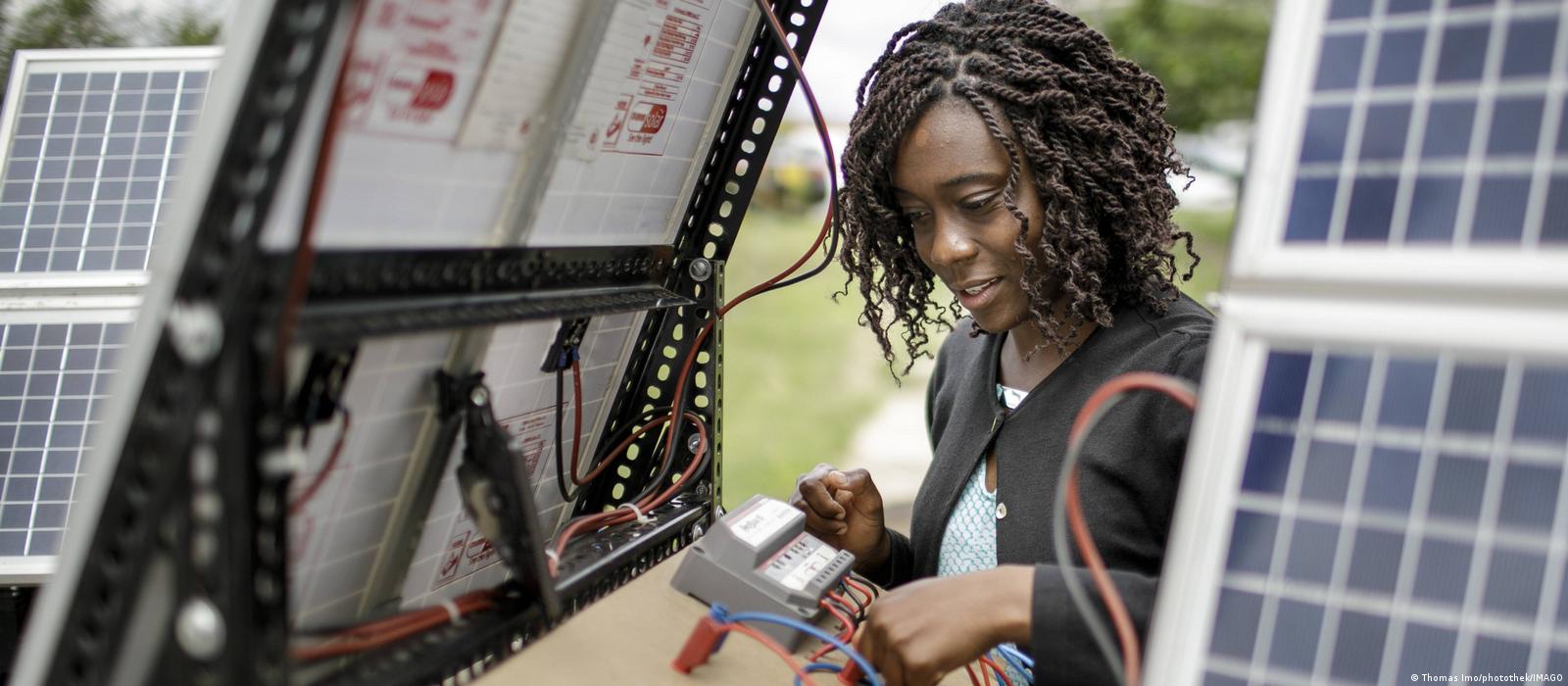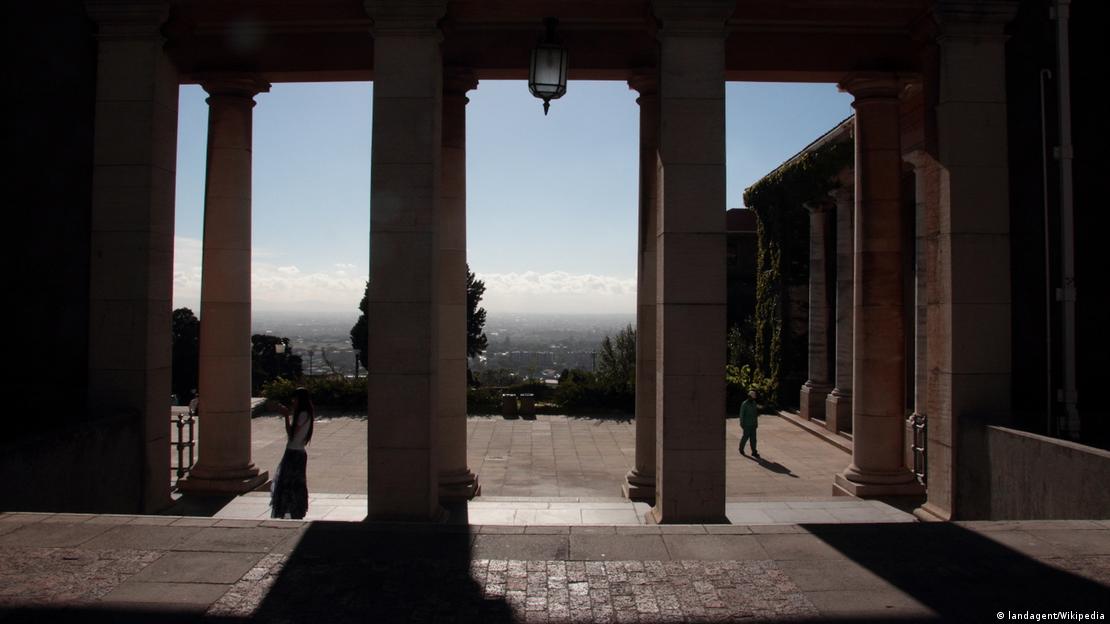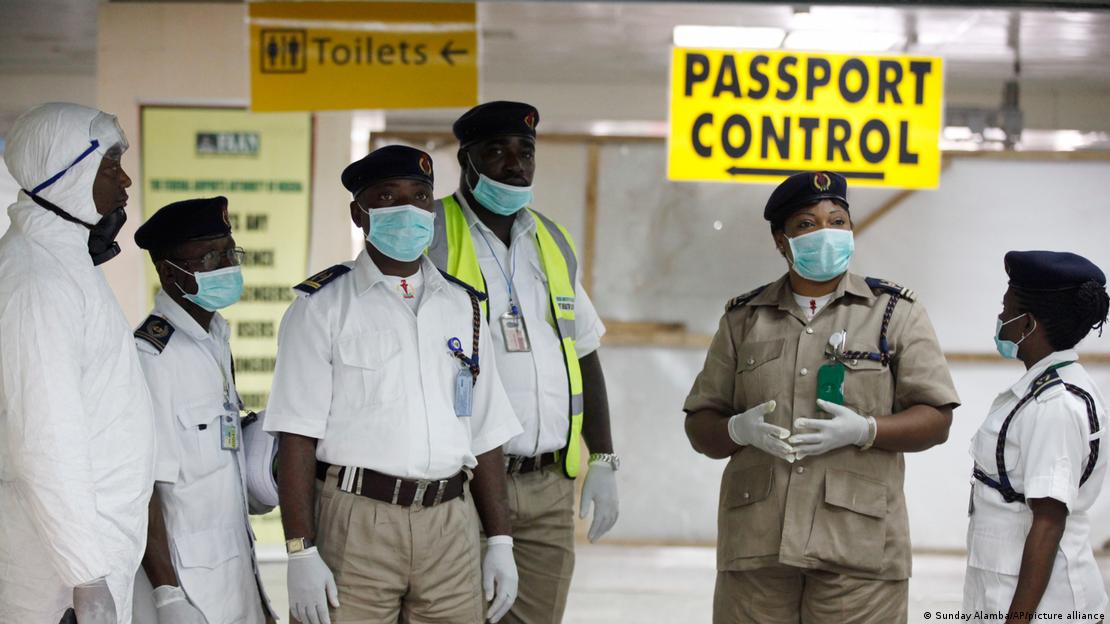Africa strives to revamp its universities
Many of Africa's higher education institutions were established by colonial governments to meet the labor needs of the time. Now many universities on the continent want to prepare graduates for the modern job market.

When Victoria Afua Dautey took up studies at the prestigious University of Ghana in Accra, it was a dream come true.
It has now been 10 years since she completed her studies. Yet, looking back, she remains somewhat sobered by the experience.
"The quality of education wasn't bad, but it certainly didn't prepare me for the working world," the young entrepreneur told DW.
"I think our educational system, in general, lacks a touch with reality. It's a bit detached. It's quite theoretical. It's just memorization, and then you write an exam," Dautey added.
She said she was lucky to have already completed several internships back in school and worked with patient colleagues.
A colonial legacy
According to Olusola Oyewole, a Nigerian microbiologist and the General Secretary of the Association of African Universities (AAU), most institutions of higher learning in Africa have a colonial heritage.
"The modern universities on the African continent, such as the University of Ghana, Ibadan (Nigeria), Makerere (Uganda), are more or less tailored to the needs of the colonial masters that colonized the various countries," Oyewole told DW.
These three universities, which were also the first in their respective countries, have their roots in British colonial rule.
"The original intention of the establishment of universities in Africa was to provide manpower for the colonial service, the civil service," Oyewole said, adding that the institutions' curricula reflected that objective.

Many of Africa's universities have a colonial heritage
South Africa lauded as an academic hub
The one country that has garnered more laurels than any other sub-Saharan country as far as academic excellence is concerned is South Africa.
The University of Cape Town (UCT), the University of the Witwatersrand, and Stellenbosch University are among its acclaimed universities, each boasting a long record of achievements.
History is still being written in the old walls today: Stellenbosch, for example, played a crucial role in coronavirus research. Only last year, Stellenbosch's Professor Tulio de Oliveira and alumnus Sikhulile Moyo , who now resides in Botswana, were awarded the German Africa Award for their discovery of the omicron variant.

African scientist Sikhulile Moyo (far right) was awarded the German Africa Prize for discovering the omicron variant
International recognition
The US Time magazine featured the two scientists in its list of the 100 most influential people of 2022.
The University of Cape Town also stands out with a long history of firsts among them the world's first human heart transplant and a number of Nobel Prize winners.
However, Oyewole stressed that the rankings by no means reflect the diversity of the university landscape in Africa. In fact, there are very few African campuses included in the data sets.
"It's not right to base a ranking on just 30 universities," he said. To remedy this, the AAU is building a database of its own that international rankings will be able to draw on.

Africa boasts one of the world's oldest universities, the University of al-Qarawiyyin in Morocco
Growing demand for higher education
With its young and growing population, the demand for higher education across Africa is increasing. As a result, new private universities have sprung up all across the continent.
With their new business models, they seem better positioned to meet the challenges of the times. The Academic City University College (ACUC) in Ghana's capital Accra is an example of one of these very successful universities.
"We know that the jobs of today look nothing like the jobs of tomorrow," ACUC Vice President Lucy Agyepong, who is responsible for institutional development, told DW.
"If you look at some of the jobs that are in existence today, like social media, consultant, influencer, and then like, five years ago, ten years ago, there were no jobs like that."
Agyepong regretted that Ghana's educational system is still preparing people for old jobs ? "the jobs that are now becoming obsolete."
Shifting to AI learning
According to Agyepong, this is why ACUC is choosing to focus on STEM subjects, including science, technology, engineering and mathematics. There is also an emphasis on artificial intelligence (AI) and robotics.
One problem troubling private universities is that more and more young people are scrambling for a place. This makes for an unbalanced ratio of teachers to students, making it difficult for the private institutions to meet their goals, says Agyepong.
But they are advantaged in other ways: While private universities secure their funding through tuition fees at ACUC, these range from $5,000 (4,555) to $7,000 a year the financial situation at many public universities remains unresolved.
"It is high time that universities in Africa recognize their areas of strength and demand they be branded according to their areas of strength," Oyewole said.
"Let them recognize their areas of strength and use them to impact development in Africa."
Expanding centers of academic excellence
For some years now, there has been some progress in that regard. For example, with funds from the World Bank, the Africa Higher Education Centers of Excellence (ACE) Impact project has created and expanded centers of excellence across the continent since 2014.
One of the key aims of the ACE project is to make graduates fit for the labor market.
The same can be said of the 'Institut 2iE' in Ouagadougou, Burkina Faso. The focus there is primarily on water and environmental technologies.
"It's a passion," Harouna Karambiri, the research director at the institute, told DW.
"It's also a commitment to the development of the African continent," he said, adding that he was proud to help build Africa's "young, competent and innovative" human capital.
His colleague Christian Happi, who heads the African Centre of Excellence for Genomics of Infectious Diseases (ACEGID) in Ede, southwestern Nigeria, takes a similar view.
"We are really changing the narrative," Happi said.
"We are putting Africa in the driver's seat when it comes to addressing infectious diseases and the challenges in the world."

Nigeria was quick to halt the 2014 Ebola outbreak, thanks to efforts by local scientists and researchers
Bolstered with funding from the World Bank, ACEGID spearheaded the rapid sequencing of Ebola when the epidemic claimed more than 11,300 lives in West Africa from 2014 to 2016.
Partnering in fighting the COVID pandemic
The center also played a crucial role in dealing with the coronavirus pandemic in Africa, helping to sequence samples from 38 countries and training researchers from 42 countries amid the pandemic.
Collaboration with colleagues from South Africa, such as Tulio de Oliveira played an essential role in the pandemic, Happi said.
"South Africa is perceived more positively compared to other countries, but excellent research can be found everywhere in Africa."
News date: 2023-04-20
Links:
https://www.dw.com/en/africa-strives-to-revamp-universities-for-the-modern-labor-market/a-65399207
KRISP has been created by the coordinated effort of the University of KwaZulu-Natal (UKZN), the Technology Innovation Agency (TIA) and the South African Medical Research Countil (SAMRC).
Location: K-RITH Tower Building
Nelson R Mandela School of Medicine, UKZN
719 Umbilo Road, Durban, South Africa.
Director: Prof. Tulio de Oliveira




